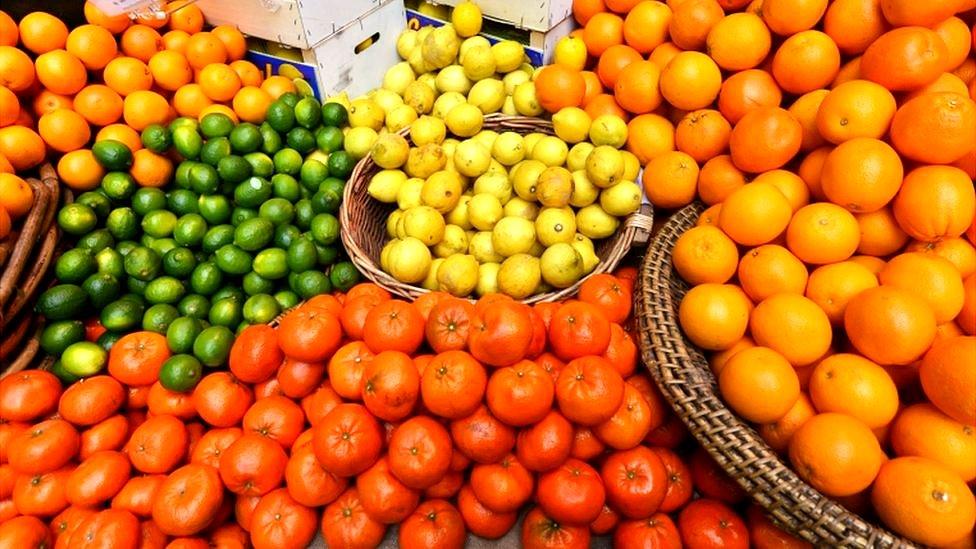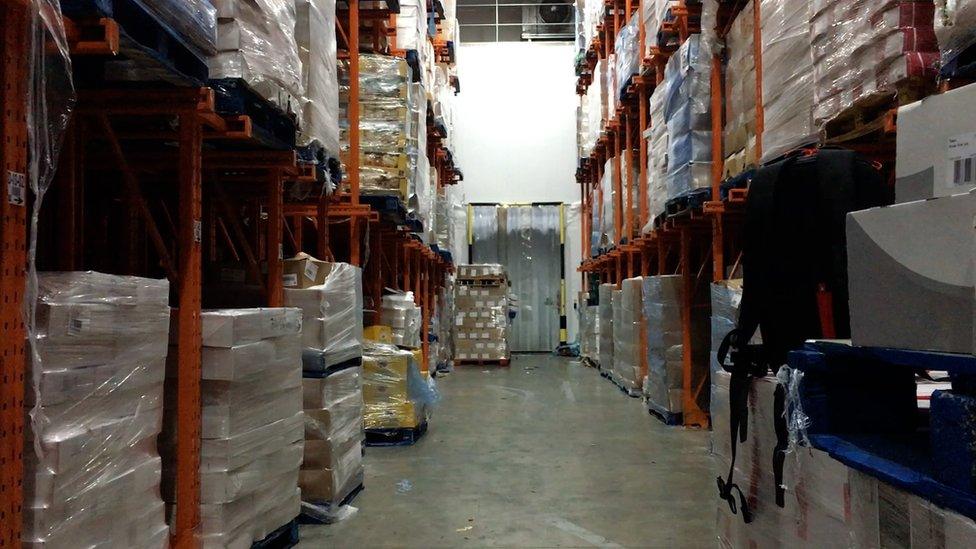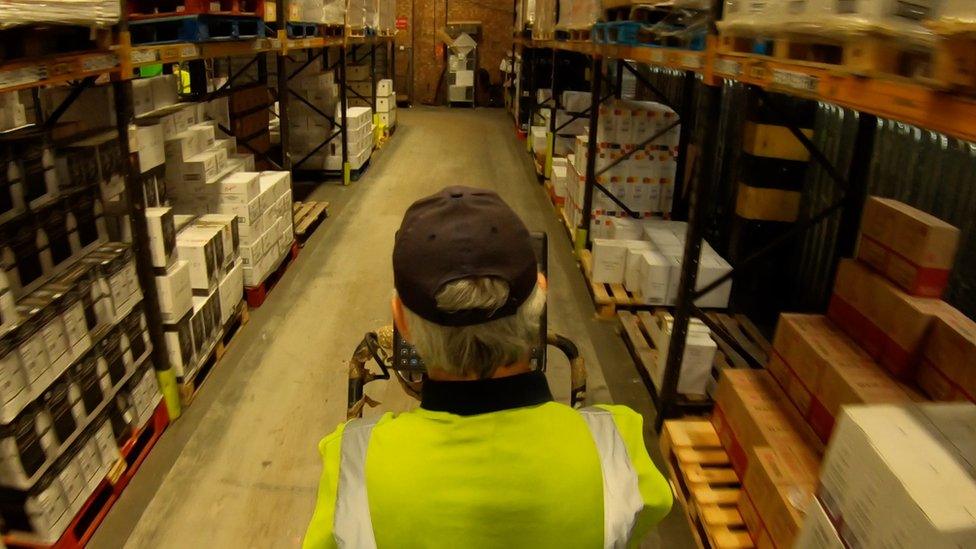Retailers to tackle Gove over Brexit food claims
- Published
- comments

Top retailers are holding what some describe as "clear-the-air" talks with government after a recent row over the impact of no-deal Brexit on the supply of fresh food in particular.
The meeting is the result of a demand from some chief executives to meet the prime minister.
Earlier this month, Michael Gove, his minister in charge of no-deal preparations, told the BBC: "Everyone will have the food they need" and "no, there will be no shortages of fresh food."
That last point was condemned immediately by the industry group, the British Retail Consortium, as "categorically untrue".
Indeed, the government's internal Yellowhammer no-deal document from last month, obliged to be published by the Commons before it was suspended, clearly states its reasonable worst-case planning assumption that "certain types of fresh food supply will decrease".
There are two different meetings this afternoon with Mr Gove and a separate scheduled meeting with top civil servants, all occurring today and attended by various top retail and food chiefs from Tesco, Sainsbury's, Co-op and John Lewis, among others.
Retailers have told me they are deeply wary that they are now on the end of a no-deal Brexit blame game from the Boris Johnson government, as it claims to be ready for no-deal and says the French government is ready.
The message in some meetings is that the only factor that will cause disruption, tailbacks and delays is, therefore, a lack of preparedness from traders, hauliers and businesses.
This has depleted levels of trust between a vital sector and the government at a tense time. Retailers report that despite some improvement in the predicted rate of flow of freight traffic across the Channel in a no-deal Brexit, the timing of Brexit Day comes at the worst possible time, with warehouses full of Christmas stock and the UK at peak dependence on European imports for fresh produce.
One top retailer told me that whereas it had more than four weeks of supply in warehouses for the original March Brexit date, its current supplies are between nine and 14 days.
Blame game fears
Retailers are trying to work out exactly how to deal with a possible consumer response to no-deal. As the published Yellowhammer document puts it: "There is a risk that panic buying will cause or exacerbate food supply disruption."
Retailers are particularly concerned that should the government, for immediate political reasons, play down the specific narrow risks to some fresh food supply, consumers will not be prepared on 1 November and will be difficult to reassure.
One retailer has been reviewing the sensitivity of consumers to shops' "just-in-time" supply chains in previous supply disruptions, such as the fuel crisis and the "Beast from the East" snow disruption.
"It took two weeks to get full supplies back to normal," one chief executive told me.

Retailers are finding it difficult to stockpile supplies
Of specific concern is the interaction between social media and and localised supply shortages. In particular, the industry is wondering who exactly will reassure consumers not to stockpile.
Some insiders, present at key planning meetings, believe the lack of trust of large parts of the public in politicians mean that reassurances from government ministers designed to stop panic-buying could provoke the opposite response.
However, those retailers concerned by an emerging Brexit blame game are also increasingly sceptical that it is their job to be reassuring about the consequences of government policy not of their making.
It was revealed in Welsh government no-deal papers released this week that a "UK-wide table top exercise to test the coordinated response for the disruption to food supply and potential public response" has been scheduled for the end of the month.
The administration in Cardiff is believed to be particularly concerned about the impact on more remote communities at the end of supermarket supply chains. It has allocated £2m to spread food bank coverage more widely, in anticipation of rising food prices.
- Published2 July 2019

